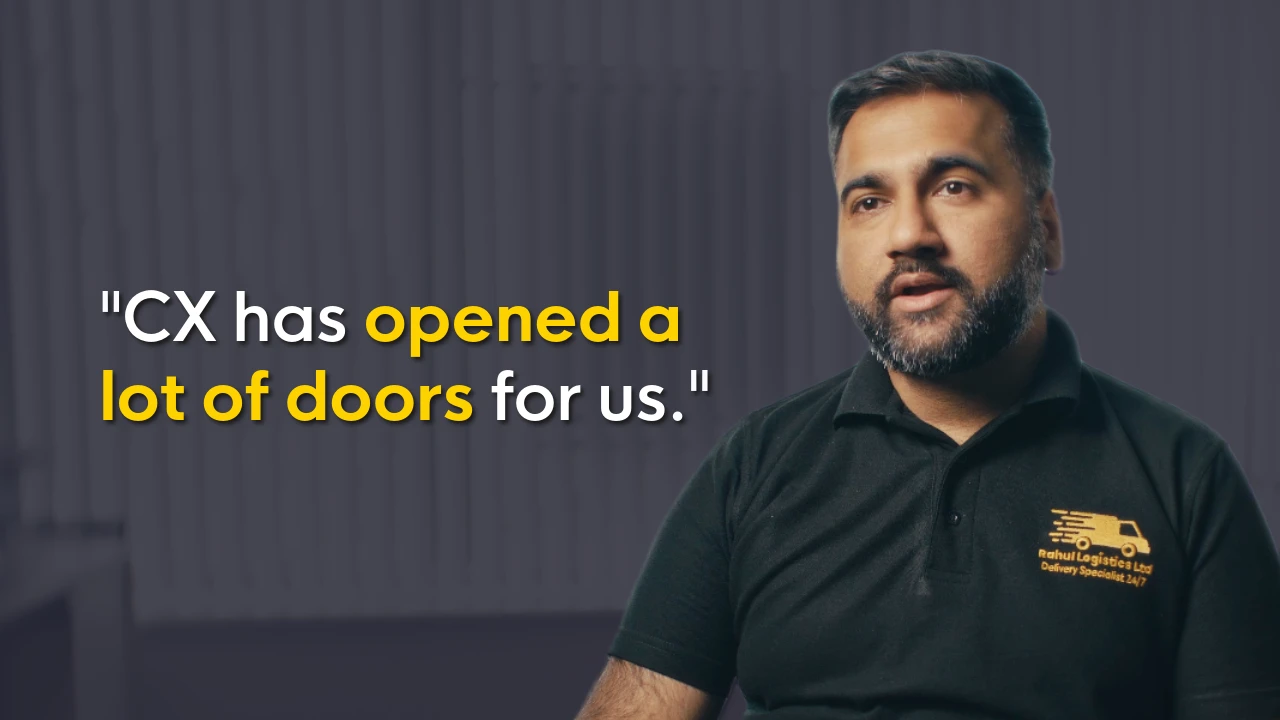Starting your own courier business is an exciting opportunity. It gives you independence, flexibility, and the chance to grow something that’s all yours. But getting it right isn’t always easy. A few common mistakes can make life harder than it needs to be.
Whether you’re launching as a sole trader or setting up a limited company, knowing what to avoid can help you save time, money, and stress.
Let’s look at the mistakes new couriers make and how to get off to a great start.
What we’ll cover
Skipping market research
Jumping straight into the courier business without understanding the market is a big risk. It’s tempting to dive into work and hope for the best, but knowing your area and customer needs makes all the difference.
Start by asking yourself: who are your competitors? Are there any services they don’t provide that you could offer? What kinds of courier jobs are in demand locally?
For example, you might find that same-day delivery or specialised services, like handling fragile goods, are lacking in your area. Identifying these gaps helps you tailor your services and attract the right customers.
Choosing the wrong insurance
Nobody likes thinking about insurance, but it’s one of the most important things to get right. Without the right cover, a single accident could cost you thousands and put your courier business at risk.
You’ll need comprehensive courier insurance that includes:
- Vehicle cover: Protects your van or car from accidents or damage.
- Breakdown cover: In case your van has an issue on the way to a delivery.
- Goods in transit insurance: Covers the items you’re delivering in case of theft, loss, or damage.
- Public liability insurance: Protects you if someone is injured or their property is damaged while you’re working.
It’s worth shopping around for a policy that fits your business needs. The right insurance doesn’t just protect your finances—it also gives customers confidence that their parcels are in safe hands.
Ignoring legal and tax requirements
Getting the legal and tax setup right from the start avoids a lot of headaches later on. Whether you’re operating as a sole trader or a limited company, the structure you choose will affect how you register, pay taxes, and manage your finances.
Setting up your business
Sole traders need to register with HMRC and file a Self Assessment tax return each year. It’s a simple process and works well if you’re starting small. If you’re thinking about hiring staff or scaling up, setting up a limited company might be a better option.
Limited companies need to register with Companies House and submit annual accounts. While it involves more paperwork, it offers benefits like limited liability and tax advantages.
Understanding taxes
Don’t forget about courier VAT if your turnover exceeds the VAT threshold. It changes how you invoice customers and handle cash flow, so it’s worth planning for early on.
Poor route planning
Time is everything in the courier business. If you’re not planning your routes properly, you’re wasting fuel, time, and money.
Invest in route-planning tools or apps that help you find the fastest, most efficient way to complete deliveries. These tools often include traffic updates and can save you from sitting in queues or taking unnecessary detours.
Even if you’re just starting out, making route planning part of your routine keeps you organised and avoids letting customers down with late deliveries.
Forgetting about customer service
In a competitive market, good customer service sets you apart. It’s not enough to deliver parcels on time—customers need to feel they’re getting a professional and reliable service.
Here are a few tips for building loyalty:
- Communicate clearly: Let customers know when their delivery will arrive and keep them updated on any delays.
- Offer tracking: Real-time updates make customers feel in control and reduce the number of queries you’ll have to handle.
- Handle complaints well: Everyone makes mistakes, but how you respond to them can make or break your reputation.
If customers feel cared for, they’re more likely to stick with you—and recommend your services to others.
Avoiding technology
Technology isn’t just for big businesses—it can help small courier companies work smarter and compete. From route-planning apps to online booking systems, there are plenty of tools to make life easier.
Helpful tools for couriers
- Freight platforms: Services like Courier Exchange connect you with other businesses, helping you find work and expand your client base.
- Digital tracking systems: These let customers follow their deliveries in real-time, reducing enquiries and boosting trust.
Embracing the right technology doesn’t just save time—it also makes your business more professional and attractive to potential clients.
Underestimating costs
It’s easy to focus on getting jobs in and forget about the true costs of running a business. But overlooking expenses like vehicle maintenance, fuel price surges, and tools can quickly eat into your profits.
Building a detailed courier business plan helps you understand your costs and set the right prices for your services. Don’t forget about fixed costs, like insurance, and variable costs, like fuel and even topping up your courier van fuel card. Planning for quieter periods is also important so you’re not caught short when work slows down.
Not planning for growth
Starting small is a great way to learn the ropes, but thinking about the future helps you build a sustainable business. Whether you’re aiming to grow your fleet, hire staff, or specialise in certain types of deliveries, having a plan makes it easier to spot opportunities and handle challenges.
For example, hiring staff in the future might mean switching from a sole trader to a limited company structure. This shift could help you protect your personal assets and scale more easily. Whatever your plans, staying flexible and prepared will help you stay ahead.
Conclusion
Starting a courier business in the UK comes with plenty of opportunities, but avoiding common mistakes makes the journey much smoother.
Take the time to research your market, get the right insurance, and set up your legal and tax structure properly. Build strong customer relationships, embrace technology, and always keep an eye on your costs.
With a bit of planning and care, you’ll be well on your way to growing your courier business and building something that lasts. Whether you’re a sole trader or a limited company, the decisions you make now will set the tone for your future success.




